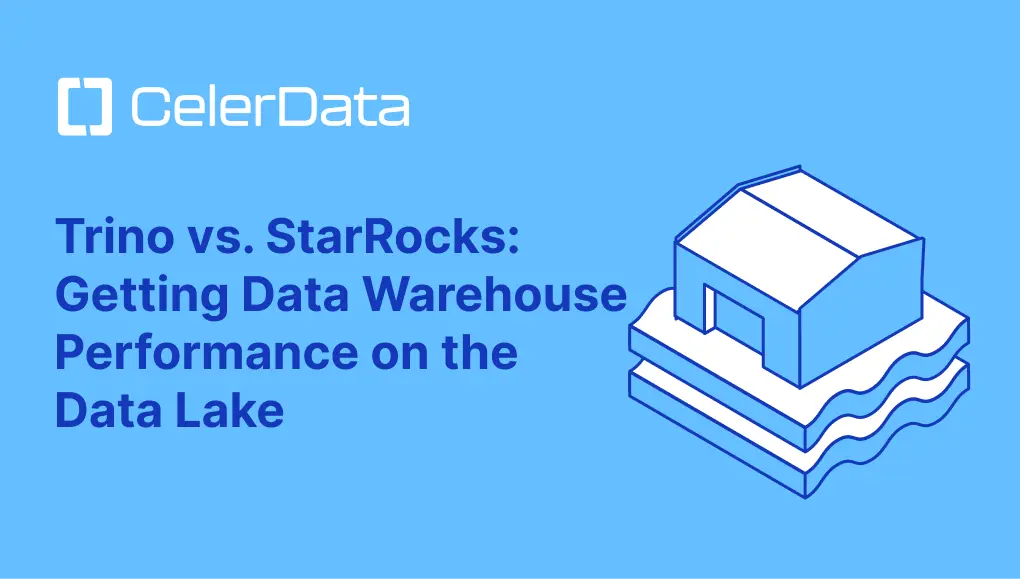
Vertica Explained: Understanding Its Core Features

Join StarRocks Community on Slack
Connect on SlackWhat Is Vertica
Definition and Overview
Vertica is a powerful tool in the world of data management. It is a columnar database management system designed to handle large volumes of data efficiently. Unlike traditional row-based databases, Vertica stores data in columns. This structure allows you to perform queries faster because it only accesses the necessary data. You can experience significant improvements in query performance, especially when dealing with analytical workloads.
Columnar Database Management System
In a columnar database, data is stored in columns rather than rows. This method of storage optimizes the database for read-heavy operations, which are common in analytics. When you query a columnar database, it retrieves only the relevant columns, reducing the amount of data processed. This results in faster query execution times and improved performance. Vertica's columnar architecture makes it an ideal choice for businesses that require quick access to large datasets.
Historical Background and Development
Vertica was developed by Micro Focus and has become a leading choice for high-performance analytics. The platform was founded in 2005 by Michael Stonebraker, a renowned database researcher. In 2011, Hewlett Packard acquired Vertica, further enhancing its capabilities and reach. Over the years, Vertica has evolved to provide real-time insights across massive volumes of data, making it a popular choice for data-intensive applications.
Key Differentiators
Vertica stands out from traditional databases due to its unique features and capabilities. Understanding these differences can help you make informed decisions about your data management needs.
Comparison with Traditional Databases
Traditional databases often use a row-based storage model, which can be inefficient for analytical queries. In contrast, Vertica's columnar storage model allows you to access only the data you need, speeding up query performance. Additionally, Vertica supports massively parallel processing (MPP), enabling it to handle large datasets efficiently. This capability makes Vertica a superior choice for businesses that require high-speed analytics.
Unique Selling Points
Vertica offers several unique selling points that set it apart from other database solutions. Its ability to integrate seamlessly with Hadoop allows you to leverage advanced analytics and machine learning applications. You can deploy Vertica on commodity hardware, providing flexibility and cost savings. Moreover, Vertica's SQL engine and advanced analytic functions empower you to extract insights from diverse datasets with ease. These features make Vertica an attractive option for organizations looking to optimize their data analytics workflows.
Core Features of Vertica
Advanced Analytics
Vertica empowers you with its advanced analytics capabilities, allowing you to derive insights from your data efficiently. This feature is crucial for businesses that rely on data-driven decision-making.
In-Database Machine Learning
With Vertica, you can perform machine learning directly within the database. This in-database machine learning capability eliminates the need to move data between different systems, saving you time and reducing complexity. You can train and deploy models using SQL, making it accessible even if you are not a data scientist. This integration streamlines your workflow and enhances the speed of your analytical processes.
Real-Time Analytics
Real-time analytics is another standout feature of Vertica. You can analyze data as it arrives, enabling you to make timely decisions. This capability is vital in industries where immediate insights can lead to competitive advantages. Vertica's architecture supports real-time data ingestion and querying, ensuring you have access to the most current information.
Scalability and Performance
Vertica excels in scalability and performance, making it an ideal choice for handling large datasets. Its architecture is designed to grow with your needs, ensuring consistent performance even as your data volume increases.
Massively Parallel Processing (MPP)
Vertica manages MPP, allowing you to process large volumes of data quickly. This massively parallel processing capability distributes tasks across multiple nodes, ensuring efficient data handling. You can execute complex queries without experiencing delays, which is essential for maintaining high-performance analytics.
Elastic Scalability
Elastic scalability is a key feature of Vertica. You can easily scale your database up or down based on your requirements. This flexibility ensures that you only use the resources you need, optimizing costs and maintaining performance. Whether your data needs increase or decrease, Vertica adapts seamlessly, providing you with a reliable solution for your data management challenges.
Why Choose Vertica
When you consider a platform for your data management needs, Vertica emerges as a compelling choice. It offers a blend of cost efficiency, flexibility, and integration capabilities that make it stand out in the crowded field of database solutions. Understanding what makes a good database is crucial, and Vertica ticks many of those boxes.
Cost Efficiency
Storage Optimization
Vertica excels in storage optimization, which is a key factor in cost efficiency. The platform uses columnar storage, allowing for efficient data compression. This means you can store more data without a proportional increase in storage costs. Efficient storage not only reduces expenses but also enhances query performance, making it a good choice for businesses looking to optimize their data management budgets.
Resource Management
Resource management is another area where Vertica shines. The platform supports dynamic workload management, enabling you to allocate resources based on current demands. This flexibility ensures that you use only the necessary resources, avoiding unnecessary costs. By managing resources effectively, you can maintain high performance without overspending, which makes Vertica a good option for cost-conscious organizations.
Flexibility and Integration
Support for Multiple Data Formats
Vertica's flexibility is evident in its support for multiple data formats. You can work with various data types, making it easier to integrate diverse datasets into your analytics workflows. This capability is essential for businesses dealing with complex data environments. By supporting multiple formats, Vertica makes it easier for you to harness the full potential of your data, regardless of its source or structure.
Seamless Integration with BI Tools
Integration with business intelligence (BI) tools is crucial for extracting actionable insights from your data. Vertica offers seamless integration with popular BI tools, allowing you to visualize and analyze data effortlessly. This integration makes it easier for you to derive insights and make informed decisions. By choosing a platform that integrates well with BI tools, you ensure that your data analytics processes are smooth and efficient.
Vertica's Architecture
Understanding Vertica's architecture is crucial for leveraging its full potential in managing your data. The architecture is designed to optimize data storage and query performance, making it a powerful tool for handling massive datasets.
Columnar Storage
Vertica employs a columnar storage model, which is a game-changer in the realm of data management. This model stores data in columns rather than rows, allowing you to access only the necessary data during queries. This approach significantly enhances query performance and efficiency.
Data Compression Techniques
Vertica's columnar storage supports advanced data compression techniques. These techniques reduce the amount of storage space required, enabling you to store more data without increasing costs. By compressing data efficiently, you can also improve query performance, as less data needs to be processed. This makes Vertica an ideal choice for businesses that need to manage large volumes of data effectively.
Query Optimization
Query optimization is another key feature of Vertica's architecture. The columnar storage model allows for faster data retrieval, as it minimizes the amount of data accessed during queries. This results in quicker query execution times, enabling you to derive insights from your data more rapidly. With Vertica, you can handle complex analytical workloads with ease, ensuring that your data works for you efficiently.
Deployment Options
Vertica offers flexible deployment options, allowing you to choose the setup that best suits your data management needs. Whether you prefer on-premises, cloud, or hybrid solutions, Vertica provides the versatility you need.
On-Premises vs Cloud
You can deploy Vertica on-premises or in the cloud, depending on your organization's requirements. An on-premises deployment gives you complete control over your data and infrastructure, which is ideal for businesses with specific security or compliance needs. On the other hand, a cloud deployment offers scalability and flexibility, allowing you to adjust resources based on demand. This option is perfect for organizations looking to leverage the benefits of cloud computing.
Hybrid Solutions
For those who want the best of both worlds, Vertica supports hybrid solutions. A hybrid deployment allows you to combine on-premises and cloud environments, providing a seamless integration of both. This setup enables you to optimize resource usage and maintain data security while benefiting from the scalability of the cloud. With Vertica's hybrid solutions, you can ensure that your data management strategy aligns with your business goals.
Conclusion
Vertica's core features make it an essential tool for modern data teams. Its exceptional query performance and advanced analytics capabilities, including in-database machine learning, provide a robust stack for modern data needs. You can leverage its real-time querying and scalability to handle complex analytical workloads efficiently. Vertica's security measures, such as encryption and role-based access control, ensure comprehensive data protection. By exploring Vertica, you can enhance your unified stack for modern data management, unlocking new insights and driving innovation within your organization.



.jpg)